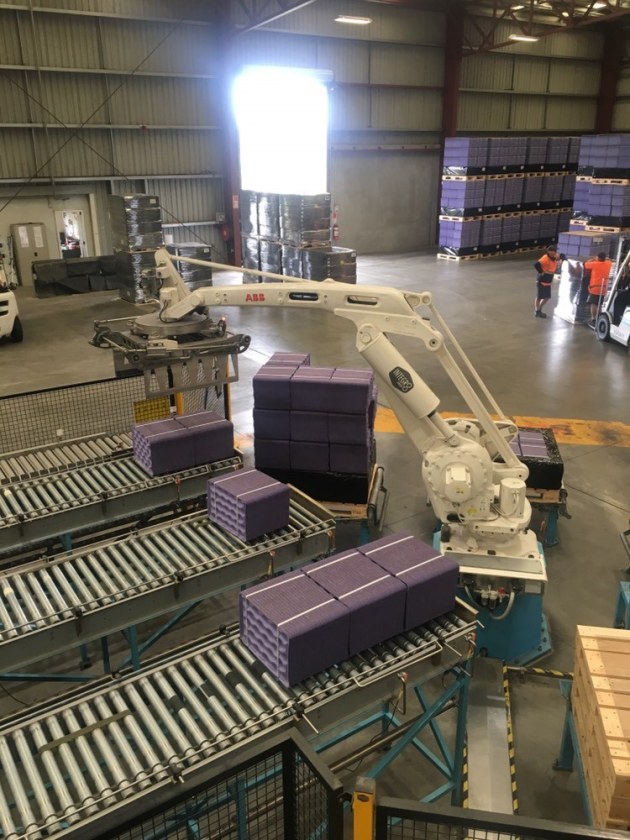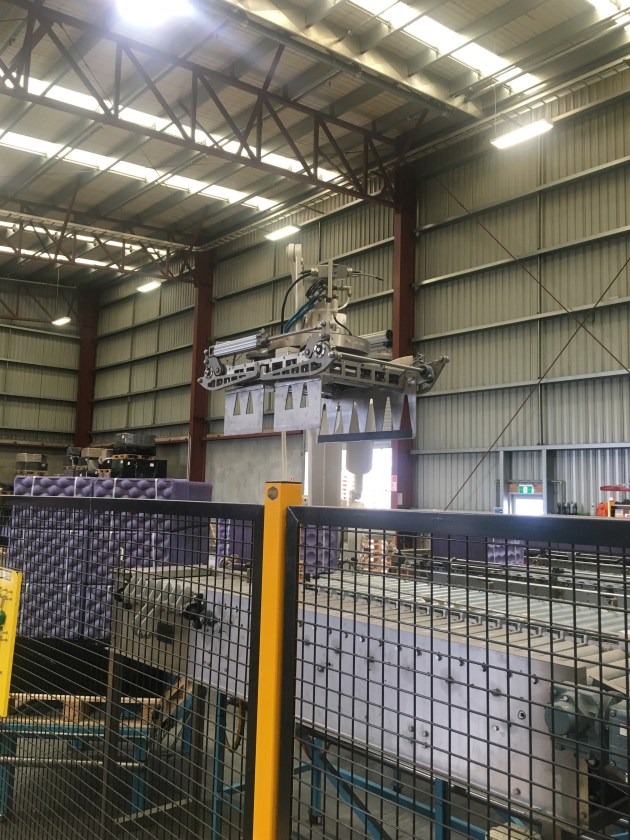APPMA member SMC has installed a new Industry 4.0 solution for a New Zealand-based packaging manufacturer.

Hawk Packaging, based in Hawkes Bay, is one of the country’s leading moulded fibre packaging suppliers, and manufactures all its products from 100 per cent recycled paper.
“Our paper is deliberately sourced from kerbside collected recycling paper. We don’t use any nasty bleaches, pigments, biocides or toxic chemicals in our manufacturing. Our products are recyclable and compostable after end use.
“Our facilities are located in the centre of the largest apple growing region to ensure minimised transport requirements and a lower carbon footprint,” says David Styles, engineering manager at Hawk.
Following recent mechanical difficulties in one of its robots, Hawk reached out to SMC and East Coast Automation. According to Dirk Siekmann, area sales manager for SMC in New Zealand, a fault in a stacker robot designed to stack finished bundles on pallets was causing downtime.
“An intermittent fault in the control of this particular robot was instigated by a communication cable failure. The robot had seen its fair amount of wear and tear after years of rotation and bending,” he said.

(Image: SMC)
To fix the problem, SMC, together with East Coast, installed its EX600-W wireless fieldbus system. A decentralised solution, the EX-600W is Ethernet/IP and Profinet compatible, can withstand electrical noise, and is suitable for harsh, industrial environments, said Siekmann.
“This wireless fieldbus system can manage both digital and analogue signals, as well as pneumatic products – making it a flexible solution for all applications. The EX600-W uses the 2.4 GHz ISM frequency band and every 5 msec frequency hopping. The noise resistance design makes it even suitable in welding environments,” he said.
According to Chris Robertson, director of East Coast Automation, the EX-600W was delivered and installed on time, on spec, and on budget.
“The installation was simple, and the solution was the perfect match for this particular application,” said Robertson.






